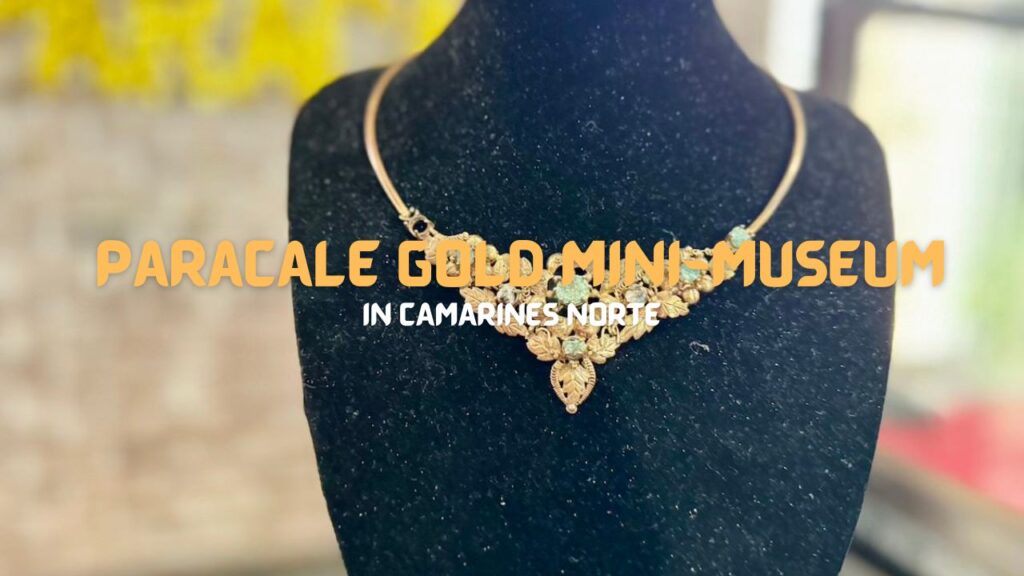The Paracale Gold Mini-Museum: A Brief Overview
The Paracale Gold Mini-Museum is a highly recommended destination for those interested in the Philippines’ fascinating history of gold mining. It is in the town of Paracale, located in the province of Camarines Norte. The museum boasts a vast collection of artifacts, exhibits, and displays that provide an insight into the rich history of the town’s gold mining industry.

Visitors to the museum can expect to see a variety of interesting items, including gold nuggets, mining tools, and even a replica of a gold mine. One of the highlights of the museum is the display of handmade gold jewelry made by residents of Paracale. The jewelry is among the top pieces at the museum and is a testament to the town’s rich cultural heritage.
The Paracale Gold Mini-Museum is an intriguing destination that provides an exclusive insight into the Philippines’ gold mining history. Whether you are a history enthusiast, a culture lover, or just searching for an exciting place to explore, this museum is certainly worth a visit.


History of Paracale
Paracale is known as a gold town in the Philippines, with a rich history of gold mining dating back to the 17th century. The town’s name itself reflects its history in mining, derived from “para cale,” meaning “canal digger.”
Early Mining Activities
The early mining activities in Paracale were mainly small-scale operations by local miners using crude methods, such as panning and sluicing. These methods were inefficient and labor-intensive, but they yielded enough gold to sustain the local economy.

Colonial Impact on Mining
The Spanish colonial government recognized the potential of Paracale’s gold deposits and established a formal mining industry in the town. The colonial government monopolized the mining industry and forced the locals to work in the mines. The locals were subjected to harsh working conditions and low wages, while the Spanish government reaped the benefits of the gold trade.
Modern Mining Developments
In the 1930s, Paracale experienced a gold boom, becoming the richest town in the Philippines. This period saw the arrival of large-scale mining companies and modern mining techniques, such as hydraulic mining and dredging. The influx of workers and capital transformed the town, with the construction of infrastructure, such as roads, bridges, and buildings.
Today, Paracale’s mining industry is a mix of small-scale and large-scale operations. The town’s gold mining heritage is celebrated at the Paracale Gold Mini-Museum, which showcases the town’s rich history of gold mining and the tools used by the miners.

Frequently Asked Questions
What exhibits are featured in the Paracale Gold Mini-Museum?
The Paracale Gold Mini-Museum showcases a wide variety of exhibits, primarily focused on the town’s rich gold mining history. Visitors can expect to see displays of gold ores, mining tools, and equipment used by the miners. The museum also features exhibits on the town’s cultural heritage, including traditional clothing, musical instruments, and other artifacts.
How does the Paracale Gold Mini-Museum showcase the town’s gold mining history?
The Paracale Gold Mini-Museum showcases the town’s gold mining history through its exhibits of mining tools, equipment, and gold ores. Visitors can learn about the different mining techniques used throughout the town’s history, as well as the different types of gold ores that were found in the area. The museum also features interactive displays that allow visitors to experience what it was like to work in the mines.
What are the operating hours and admission fees for the Paracale Gold Mini-Museum?
The Paracale Gold Mini-Museum is open from 8:00 AM to 5:00 PM, Monday to Friday.
What are some notable artifacts on display at the Paracale Gold Mini-Museum?
Some notable artifacts on display at the Paracale Gold Mini-Museum include a collection of gold ores, traditional mining tools, and equipment used by the miners. Visitors can also see a display of gold jewelry made by local residents, as well as traditional clothing and musical instruments.
How does the Pabirik Festival relate to the Paracale Gold Mini-Museum?
The Pabirik Festival is an annual event held in Paracale that celebrates the town’s rich gold mining history. The festival features cultural dances, music, and other activities that showcase the town’s heritage. The Paracale Gold Mini-Museum is closely related to the festival, as it features exhibits and displays that highlight the town’s gold mining history and cultural heritage.
Follow and Subscribe to OutofTownBlog.com on Facebook, Twitter, Instagram, Pinterest, and YouTube for more Camarines Norte tourist spots.
Read:

